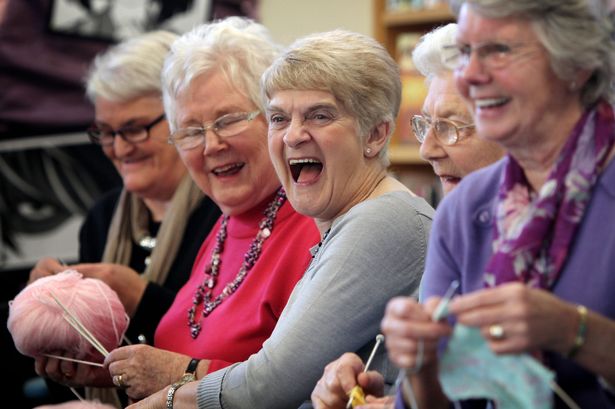Ross Dementia Meeting Centre - Home page
hosted by Christ Church in Edde Cross Street
Welcome
10 Dec 2018 - see Updates in green panel.
Welcome to this exciting and innovative local service for people with mild or moderate dementia which is designed to provide support to them and their carers/families, and offer an enjoyable and adaptive programme.
If just one page is to be read, it is Risk assessment here.
This set of pages outlines the philosophy and procedures within the Ross DMC.
The carer-participation approach used in Holland has proved far more successful. Volunteers are needed for whom it is a generous privilege to participate in reducing the burden of dementia for those who suffer it, and a privilege to be part of reducing the burden of other dementia-carers and their carees. That applies to independent carees who, until now, have not been given special consideration.
It needs to be said that DMCs came to England form Holland via a multi-thousand £ international research project to explore whether they work here, Italy and Poland. Two were set up in Droitwich and Leominster and cost £90K pa to operate. Two or three lesser DMCs were set up since.
The DMC in Ross, far from costing £90K pa was set up with £300 and runs supported by volunteers and minimal funding.
The Government has taken no interest. The Alzheimer’s Society withdrew its £ support at the end of the project.
Such situation can only lead to very few new DMCs. I have proved it is less daunting than the University of Worcester dictates.
Prof Alan F Harrison -website author and Ross DMC founder. March 2017
Contact 07952 060505
Links
- Risk assessment here here
- Ross DMC A5 leaflet here
- Volunteers page here
- A day in the life of Ross DMC here
- Ross DMC Carer page here
- Carer stress here
- Caree page here
- Activities for carees and carers here
- which includes Poetry here from the DIY DMC set of pages - see foot of that page
- Ross DMC FAQs here
- Song and music here
- Equipment here
- Reminiscence here
- Carees paint pictures here
- Money here
- Working towards Panels 3 & 4 here
Christ Church here
National Dementia Strategy 2018
Full steam ahead for the new Ross Dementia Centre - Ross Gazette here.
New Ross DMC is getting ready to open - Ross Gazette - here
- donation! here
125 Dementia Meeting Centres - DMCs - have been successful in the Netherlands for over ten years. They focus on helping the person with dementia - the caree, their carer, and their family adapt to living with dementia. Hitherto, no distinction has been made regarding independent carees and their families.
An international project set up more DMCs in other countries and but created two only in Leominster and Droitwich. They ran on three days per week. The project website demonstrates it is now a dead duck by not updating its pages. One example. The two DMCs ran on £90K pa.
I was the only person to keep the public informed as seen here. It now operates as a shadow of its former self.
The Ross DMC began with £300 of my money and started operating 1/7 from 1100 to 1500 in March 2017. Never mind £90K pa. More like £400 pa.

Carees are, obviously, the focus of the Ross DMC energy. They are as much a part of the energy as its purpose and that will be explained. As you have learned, carers are the second dimension of the energy. You'd think that helping in the process of reducing the effect of dementia on the caree is the carer's sole focus. You'd be right, and there's more to it. Carers learn to focus within a new balance. They learn to care as much for themselves as they learn new ways to improve their carees' condition.
They are shown how to consider their new role within the Ross DMC therapeutic process as a form of respite to which they contribute and from which they themselves gain. With fewer carers being able to leave their carees at conventional day centres, the parking model of respite, due to government cuts, carers at Ross DMC will soon see the new model of provision as much better than daycare second best.
Independent carees are self-carers and are included when the word carer/s is used.
The caree
and independent carees

The carer The DMC
carers and independent carees
Participation in the care provision and process is the key characteristic of the DMC. The Ross DMC focuses the "care inwards" on carees and carers who soon learn how to focus their "care outwards".
The Ross DMC comprises trained volunteers who lead some of the activities and who also marshal specialists to assist in the various therapeutic processes. Often, were anyone to drop in, they couldn't distinguish who's whom.
Within the four in the front row, Beryl in black is a caree whose carer is busy in Shed Talk in another room. Rena in red is the volunteer, Jean in the grey jersey is the caree. Brenda in blue is an independent caree who can cope without a carer. Yes, it's a Knit and Natter session! With a purpose, as you will see later.
We'll move on now and look at
A day in the life of Ross DMC here
